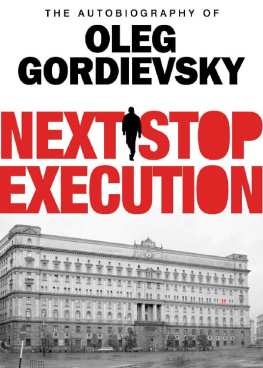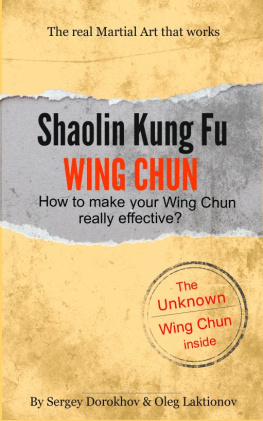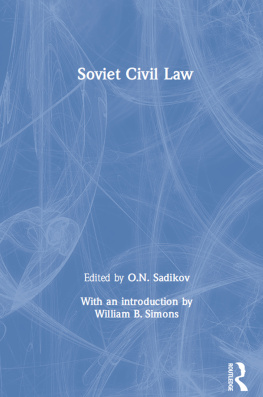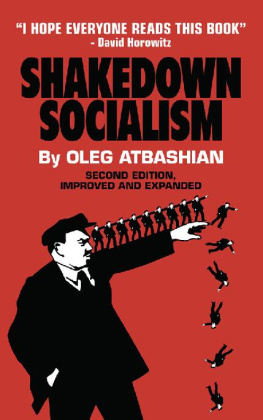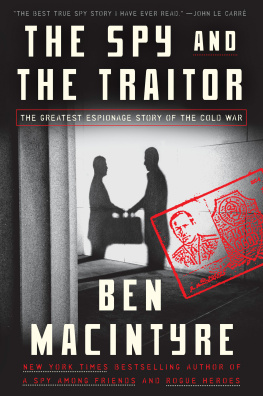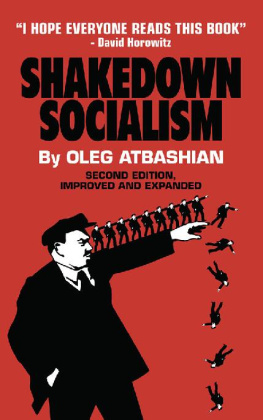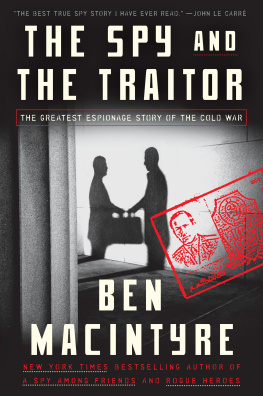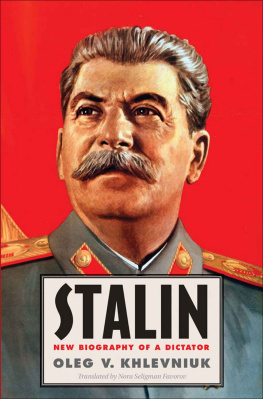Oleg Gordievsky - Next Stop Execution: The Autobiography of Oleg Gordievsky
Here you can read online Oleg Gordievsky - Next Stop Execution: The Autobiography of Oleg Gordievsky full text of the book (entire story) in english for free. Download pdf and epub, get meaning, cover and reviews about this ebook. year: 2018, publisher: Endeavour Quill, genre: Non-fiction / History. Description of the work, (preface) as well as reviews are available. Best literature library LitArk.com created for fans of good reading and offers a wide selection of genres:
Romance novel
Science fiction
Adventure
Detective
Science
History
Home and family
Prose
Art
Politics
Computer
Non-fiction
Religion
Business
Children
Humor
Choose a favorite category and find really read worthwhile books. Enjoy immersion in the world of imagination, feel the emotions of the characters or learn something new for yourself, make an fascinating discovery.
- Book:Next Stop Execution: The Autobiography of Oleg Gordievsky
- Author:
- Publisher:Endeavour Quill
- Genre:
- Year:2018
- Rating:5 / 5
- Favourites:Add to favourites
- Your mark:
- 100
- 1
- 2
- 3
- 4
- 5
Next Stop Execution: The Autobiography of Oleg Gordievsky: summary, description and annotation
We offer to read an annotation, description, summary or preface (depends on what the author of the book "Next Stop Execution: The Autobiography of Oleg Gordievsky" wrote himself). If you haven't found the necessary information about the book — write in the comments, we will try to find it.
Next Stop Execution: The Autobiography of Oleg Gordievsky — read online for free the complete book (whole text) full work
Below is the text of the book, divided by pages. System saving the place of the last page read, allows you to conveniently read the book "Next Stop Execution: The Autobiography of Oleg Gordievsky" online for free, without having to search again every time where you left off. Put a bookmark, and you can go to the page where you finished reading at any time.
Font size:
Interval:
Bookmark:
Next Stop Execution
The Autobiography of Oleg Gordievsky
Oleg Gordievsky
Copyright Oleg Gordievsky 1995
The right of Oleg Gordievsky to be identified as the author of this work has been asserted by her in accordance with the Copyright, Designs and Patents Act, 1988.
First published in the United Kingdom in 1995 by Macmillan.
This edition published in 2018 by Endeavour Media Ltd.
I am profoundly grateful to all my good friends during my co-operation with the British Intelligence, to all those who helped at my rescue, and to all who fought for my family to be reunited.
Table of Contents
Introduction
This book was originally published over two decades ago, in the aftermath of the Cold War, which ended with the break-up of the Soviet Union and the liberation of the countries of Eastern Europe that had been under Soviet domination since the end of the Second World War. It was a time of huge change and hope. After years of confrontation between two world systems Soviet Communism and Western values which had come at times dangerously close to catastrophic military conflict, it seemed a new era had arrived, in which the values of freedom, democracy and openness had finally overcome totalitarianism and oppression.
Many of us, especially those who had resisted the Soviet regime from within, were full of hope that real change was under way, even in Russia itself. That sense of optimism was reflected in the final pages of the first edition of Next Stop Execution . The communist system that I had come to despise, and against which I had fought in secret for so many years, was finally gone. The apparatus of tyranny by which the party, and its chief agency of oppression, the KGB, had kept the people in a state of fear and subjugation, was being dismantled. Russia began to open up, with a spirit of freedom not only in politics but in all spheres of society, not experienced since before the First World War. It was a heady, exciting time.
People were hungry for change, but also to understand what kind of system they had been living under; and, with that knowledge, to build strong institutions that would protect their new-found freedoms and create an open society. For a while, it seemed as if anything was possible, and perhaps it was.
It takes time to build democracy and accountable institutions able to limit the exercise of power, especially through independent media and a fair legal system. The new system of government which immediately succeeded Soviet rule was far from perfect, and this opened the way for a reversal of the gains which had been achieved. In the late 1990s and early years of this century Russia took a decisive step backwards, with the return to power of many of the individuals and institutions, albeit renamed, which had upheld the old Soviet tyranny. In particular, the former security and intelligence agencies succeeded in regaining their former positions of power and control, and now once again dominate the Russian state, including all the major political institutions, the economy and the military.
The old KGB, under its new names, now constitutes the real government in Russia. It is even more powerful, relatively speaking, than the KGB of old. The new Russia, shorn of the former communist ideology, and without its veneer of idealism for a better world, is interested only in power: power for Russia itself and unchallenged power for the new ruling class; those few individuals and their cronies who now dominate all spheres of Russian politics, society and life.
As in the Soviet era, this new regime will use any means to consolidate its authority, and to try to undermine those institutions and countries it regards as its enemies and rivals. So we are now seeing a return to the brazen methods and instruments of the past, including use of military force (invasion of Eastern Ukraine, seizure of the Crimea, military adventures in the Caucasus and Syria ) and subversion of democratic processes and institutions in the West, including interference in elections and the criminal elimination of its enemies, including journalists, lawyers and oppositionists, some of whom have settled in the West, who dare to speak out against the regime. In its reckless choice of murder weapons, endangering innocent bystanders, it seems not to care whether its hand is revealed. Indeed, such brazen use of force seems now to be, as it was in the Soviet era, a deliberate part of the tactic to silence and to intimidate opposition and protest, just as terrorists seek to do.
Today, the former Soviet regime and its confrontation with Western values during the Cold War are fading in popular memory. But the challenges today, to continue to fight for freedom and openness, and to expose subversion and underhand methods to destroy the precious institutions of democracy, remain, sadly, all too real and pressing.
The dangerous situation we now face did not come about spontaneously: it grew out of the conflicts and struggles of the past. It is my hope that the retelling of my own story of struggle and opposition may have lessons for our present struggle, and remind us that it is by remaining true to our values that we have the best chance to protect our way of life from those who seek to destroy or undermine it.
It is over thirty years since I settled in the United Kingdom. Life has been good to me. I enjoy freedom and democracy, I enjoy openness and debate. I would like the same privileges and opportunities to be more widely available in the world. I am grateful for the support and protection I continue to be given; and I wish success to those who protect and safeguard the institutions and values of this country, and its international partners, both now and in the challenging years ahead.
Oleg Gordievsky, 2018
Authors Note
I wish to emphasize that this book is in no sense an official history of intelligence operations, and has not been endorsed by any government authority. Rather, it is a purely personal account of my life and career, and the opinions expressed are mine alone.
Oleg Gordievsky
March 1995
Chapter One Escape or Die
Thunderstorms were rolling over Moscow, and occasional heavy showers sent people scurrying for cover. On Tuesday, 11 June 1985, the KGB net was closing round me, and I knew that if I did not break out of the great concentration camp of the Soviet Union within the next few weeks, I would die. The time had come to activate the escape plan which my friends in the British Secret Intelligence Service (SIS) had prepared for me and held in readiness for years.
The KGB had planted microphones in my flat, on the eighth floor of the tower block at 103 Leninsky Prospekt, in the south-western sector of the city known as Yugozapad. I feared that they might also have installed a secret television camera. I therefore had to be extremely careful about bringing out my escape instructions, two copies of which were bound into the hard covers of innocent-looking English novels. Taking one of the books, I went into the kitchen where I was doing some washing and put the book to soak beneath it. After a few minutes I was able to peel back the flyleaf and retrieve the sheet of Cellophane containing my secret instructions. Putting the remains of the book down the waste chute, I went into the small box-room, closed the door behind me, and read the instructions by the light of a candle beyond the reach of any probing lens.
The ease of that little operation reassured me, and it took only a few minutes to refresh my memory about what I must do. To warn the British that I was in danger, I had to appear on a certain street corner at 7 p.m. on a Tuesday, and stand by a lamp-post on the edge of the pavement holding a plastic Safeway shopping bag. Next, at 11 a.m. on the third Sunday after that, I would pass a written message by brush-contact in St Basils Cathedral, on Red Square.
Next pageFont size:
Interval:
Bookmark:
Similar books «Next Stop Execution: The Autobiography of Oleg Gordievsky»
Look at similar books to Next Stop Execution: The Autobiography of Oleg Gordievsky. We have selected literature similar in name and meaning in the hope of providing readers with more options to find new, interesting, not yet read works.
Discussion, reviews of the book Next Stop Execution: The Autobiography of Oleg Gordievsky and just readers' own opinions. Leave your comments, write what you think about the work, its meaning or the main characters. Specify what exactly you liked and what you didn't like, and why you think so.

